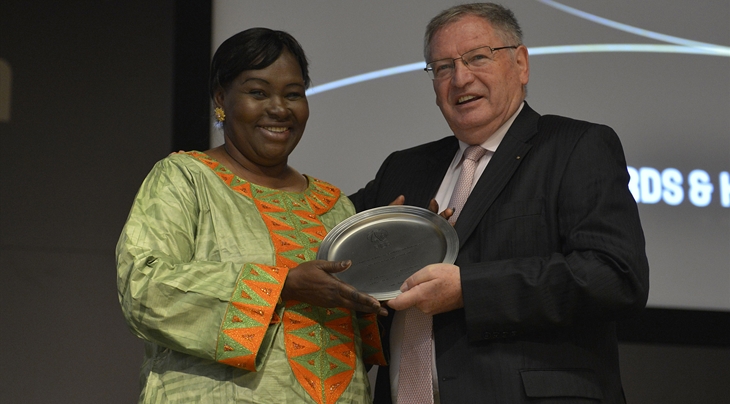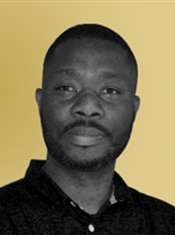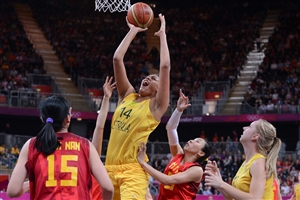
Remembering Salamatou Maiga
SHEFFIELD (Julio Chitunda's African Message) - Salamatou Maiga left us last month, but her legacy will remain alive, not only in Mali's basketball books, but also on the entire African continent.
I was left speechless when I browsed FIBA.com just before Christmas to find out that she had passed away in Paris, France, at the age of 62.
Maiga was one of my main connections at Mali's Basketball Federation, where she served as General Secretary.
I last met her during the opening ceremony of the 2014 FIBA Basketball World Cup held at Parador de San Francisco in Granada, Spain, where she introduced me to FIBA Africa's new president, Mr Hamane Niang. We were photographed together and, after that moment, I never saw her again.
A former Mali international born in Niamey, the capital of Niger, she dedicated over four decades of her life to helping the development of basketball in Mali, especially the women's game, which gained admiration and respect throughout the African continent.
Part of Mali's basketball success has been credited to Maiga's perseverance.
According to media reports in Mali, she was planning to retire later in December.
I will never know if Maiga used to get upset with my phone calls and persistent curiosity to find out how the Mali Basketball Federation was dealing with preparations and planning of certain international tournaments.
But one thing was certain: she always gave me the answers that she thought were important for my work.
Most of the times I met her she had always a happy face.
Even after Mali were trounced at the 2012 FIBA Olympic Qualifying Tournament for Women (OQTW) in Ankara, Turkey, I was disappointed, but she showed no signs of distress.
My only chance to catch up with Maiga in the Turkish capital happened at Esenboga International Airport. The Malian delegation was checking in to fly to Casablanca, Morocco, to then get a connection flight to Bamako, while I was traveling back to Manchester.
Even though the airport check-in area was not the ideal place to give me an interview, she stopped by and agreed to talk to me. I always admired her colourful dressing style.
Mali performed so poorly in that tournament, suffering big defeats to France and Canada, that I thought Maiga had an explanation to give.
I was curious about suggestions that some senior players - including Djenebou Sissoko, Naignouma Coulibaly, Djene Diawara, just to mention a few - had boycotted the national team and decided to skip the OQTW.
Maiga always denied the suggestions, calling it rumours.
At Ankara Airport, my first question to her was to find out her thoughts on Mali's performance at the OQTW.
"We came to Ankara to prepare for the 2013 AfroBasket Women. We did not come here to get qualified [for the London Olympics]."
Then I insisted that the OQTW was not a preparation tournament and teams had to get ready. She agreed with me, but advanced another explanation.
"We knew we were not going to get qualified, that's why we brought a young team to prepare the future of our national team. No, there was not any boycott. They (senior players) have not refused to play for our national team.
"Most of them had just finished their professional seasons overseas and they needed some rest. So we wanted to give a chance to our young players.
"Being young does not mean that you cannot compete. If they [senior players] do not come [to AfroBasket Women 2013] we will play with the same team."
Then, when I asked her if the political turmoil in Mali at the time could have affected the development of sports - particularly basketball - in the country, Maiga's response was genial.
"Politics and sports are two different matters. The political situation in our country cannot and will not stop from us doing sport," she argued.
At AfroBasket Women 2013, Diawara and Coulibaly confirmed to me they had missed out the OQTW, simply, for professional reasons.
Michel Perrin, who coached Mali at the 12-team tournament in Turkey, shared his thoughts of Maiga with me.
"[She was] A respectful woman, [the] mother of Mali basketball and a person you could trust," he said.
Julio Chitunda
FIBA
FIBA's columnists write on a wide range of topics relating to basketball that are of interest to them. The opinions they express are their own and in no way reflect those of FIBA.
FIBA takes no responsibility and gives no guarantees, warranties or representations, implied or otherwise, for the content or accuracy of the content and opinion expressed in the above article.

















